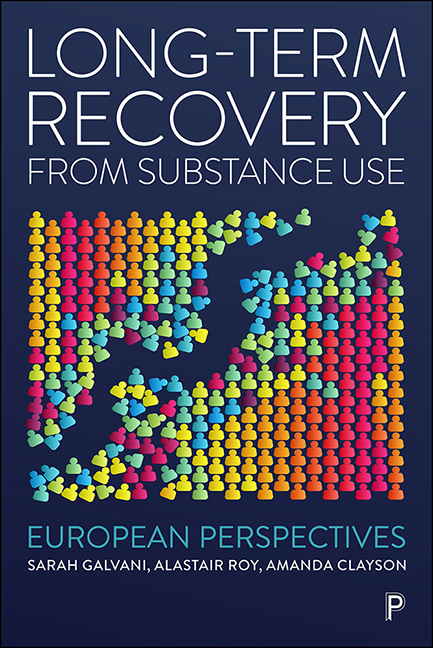7 - Multiple recoveries: substance use and trauma
Published online by Cambridge University Press: 15 September 2022
Summary
Introduction
The work in this collection so far has discussed the concept of long-term recovery as having a multitude of meanings for a variety of people with lived experience of substance use. For some, long-term recovery is about ongoing abstinence from specific or all substances; for others, it is about reducing the quantity of substance used or changing the type of substance used. For many, long-term recovery may not be an experience that will ever be found. This current chapter argues that when exploring the concept of long-term recovery from substance use, it is important to acknowledge the role of long-term trauma,1 because substance use is about so much more than the drug itself, it is ‘a response to life experience, not simply to a drug’ (Maté, 2018, p 304).
The idea of long-term recovery from substance use must be contextualised within the long-lasting impact of trauma. Problematic substance use is common among trauma survivors, as are anxiety, PTSD, depression and eating disorders (West and Merritt-Gray, 2001; Lindhorst and Beadnell, 2011; McLaughlin, 2017). Victims of physical and sexual abuse ‘often develop long term reactions that include fear, anxiety, fatigue, sleep and eating disturbances, intense startle reactions, and physical complaints’ (Van Der Kolk, 2014, p 8). Symptoms of trauma may return at different stages of life (when having children, suffering significant personal losses or during new relationships), and a person with past trauma may return to treatment years after she considered herself ‘recovered’ (Herman, 2015). In turn, sudden symptoms of trauma could once again trigger the use of substances if they are used as a coping strategy (Smith, 2019). Moreover, both childhood and adult trauma, particularly experiences of physical and sexual abuse, have been described as an isolating, ‘disconnecting’ experience, removing the feeling of belonging to other people and the community (Herman, 2015). This is the result of spoiled trust, feelings of guilt, shame and inferiority caused by the trauma. As Herman puts it, ‘Traumatic events have primary effects not only on the psychological structures of the self but also on the systems of attachment and meaning that link individual and community’ (Herman, 2015, p 51).
- Type
- Chapter
- Information
- Long-Term Recovery from Substance UseEuropean Perspectives, pp. 80 - 92Publisher: Bristol University PressPrint publication year: 2022



